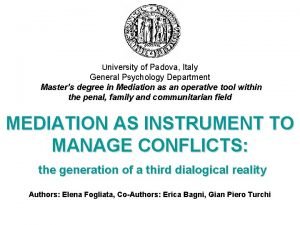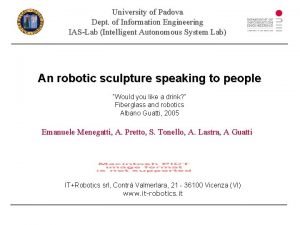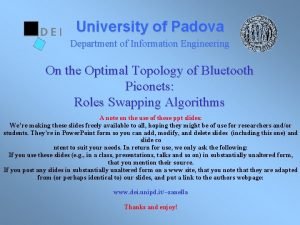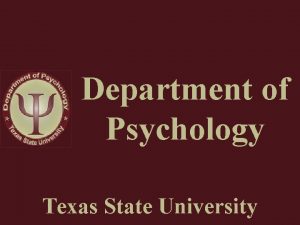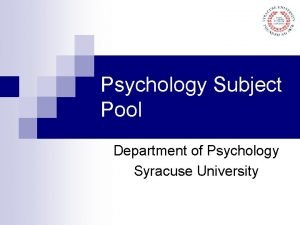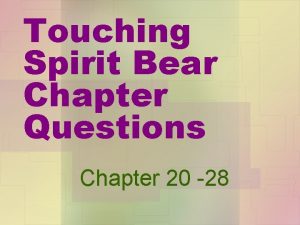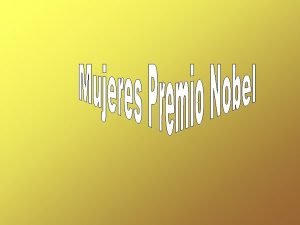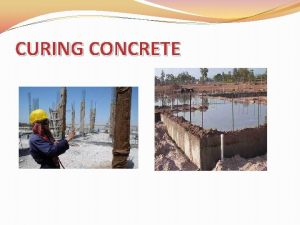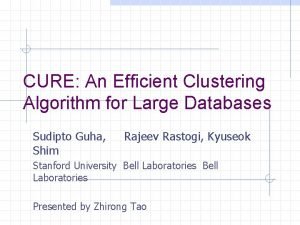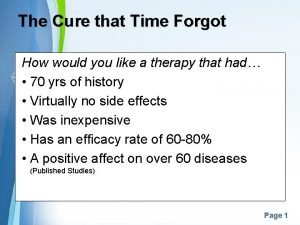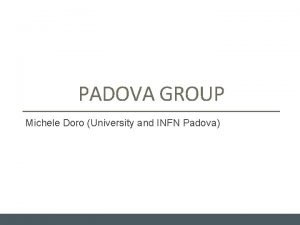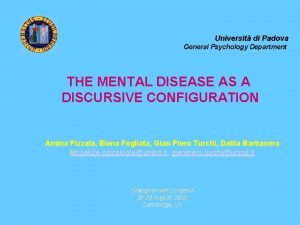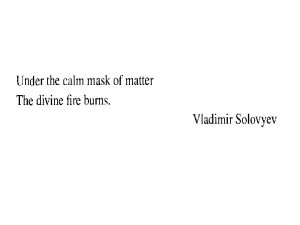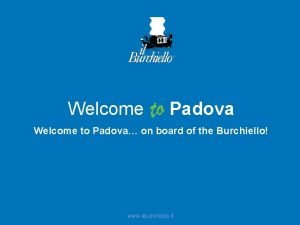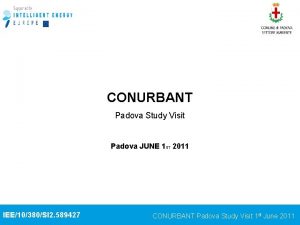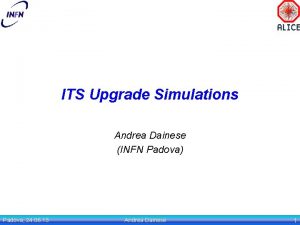University of Padova General Psychology Department From cure









- Slides: 9

University of Padova General Psychology Department From cure to biography. Ungrounding of medical model in intervention on “drug abuse”: a research among social and health operators Battisti L. , Bertinotti T. , Turchi G. P.

To investigate the social and health operators’ adherence to the medical model about general and specific problems in the drug addiction treatment. AIM INSTRUMENT ad hoc protocol (26 closed questions and 4 opened questions ) SAMPLE DOCTORS NURSES PSYCHIATRISTS PSYCHOLOGISTS TOTAL 160 97 85 123 465 SPSS (closed questions) DATA ANALISYS: M. A. D. I. T. * Spad. T (opened questions) [M. A. D. I. T. : Methodology of Processing Data Analysis, Turchi et al. 2007]

To investigate the operator's adherence to the medical model about definition of sign and symptom SIGN DEFINITION: the "subjective" experiences that patients might report to themselves SIMPTOM DEFINITION: "objective" indication of some issues that are detected by a physician during a physical examination of a patient SIGN % SIMPTOM AGREE UNDECIDED DISAGREE DOCTORS 14, 1 5, 1 80, 8 26, 9 1, 3 71, 8 NURSES 44, 9 4, 1 51 42, 9 8, 2 49 PSYCHIATRISTS 45, 5 6, 8 47, 7 59, 1 2, 3 38, 6 PSYCHOLOGISTS 42, 9 22, 2 34, 9 67, 7 4, 6 27, 7 X 2 * * Chi-Square statistical significance: p=0, 05 *

“drug addiction can be defined as : ” % A relational problem A diagnostic label that involves a group of cognitive, behavioural and physiological symptoms A term without unambiguous definition A personality disorder An ego reaction that concerns some defence mechanisms to reduce unacceptable psychic contents * Chi-Square statistical significance: p=0, 05 AGREE UNDECIDED DISAGREE X 2 68 12, 4 19, 6 * 46, 8 12, 6 40, 5 * 45 20, 7 34, 2 45, 2 16, 2 38, 6 49, 6 19, 2 31, 3

The MEDICAL PRAXIS consists in the following phases: Medical history, Diagnosis, Cure and Therapy, Prognosis, Prevention, Evaluation. Drug addiction treatment consists in the following phases: % AGREE UNDECIDED DISAGREE Medical history 91, 9 6 2, 1 Diagnosis 95, 3 4, 2 0, 4 Cure 90, 2 6, 8 3 Therapy 91, 1 6, 8 2, 1 Prognosis 56 26, 5 17, 5 Prevention 83, 9 9, 7 6, 4 Evaluation 90, 2 7, 2 2, 6 * Chi-Square statistical significance: p=0, 05 X 2 *

CONCLUSIONS Diagnosis outlines drug addiction and is based on methodologically incorrect steps drug addiction as a nosographic category is not correct The drug addiction definition given by respondents is not unambiguous, therefore it doesn’t provide knowledge elements about drug addiction. treatment aims are not univocally defined and pursued through a common methodology.

CONCLUSIONS Not univocal aims definition leads up to not efficaciuos interventions Using the medical model in the drug addiction field is done a transposition of the medical rhetorical praxes but not of theoretical-methodological rules of medical model. making “drug addiction” diagnosis is like ascribing a linguistic label and not a clinical case explanation through signs and symptoms.

THE PROPOSAL Drug addiction Consumption of substances considered illegal PARADIGMATIC “SHIFT” Aim: Healing the patient Reconfiguring the biography of the consumer Strategy: Structures based on medical model interventions scientifically based make in the territory

CONTACT: labsalute. psicologia@unipd. it
 University of padova psychology department
University of padova psychology department Department of information engineering university of padova
Department of information engineering university of padova Department of information engineering university of padova
Department of information engineering university of padova Texas state university psychology department
Texas state university psychology department Syracuse university psychology department
Syracuse university psychology department Touching spirit bear chapter 20 questions and answers
Touching spirit bear chapter 20 questions and answers Maria andria wikipedia
Maria andria wikipedia Concrete cure curve
Concrete cure curve Cure: an efficient clustering algorithm for large databases
Cure: an efficient clustering algorithm for large databases Dr frank shallenberger quackwatch
Dr frank shallenberger quackwatch
